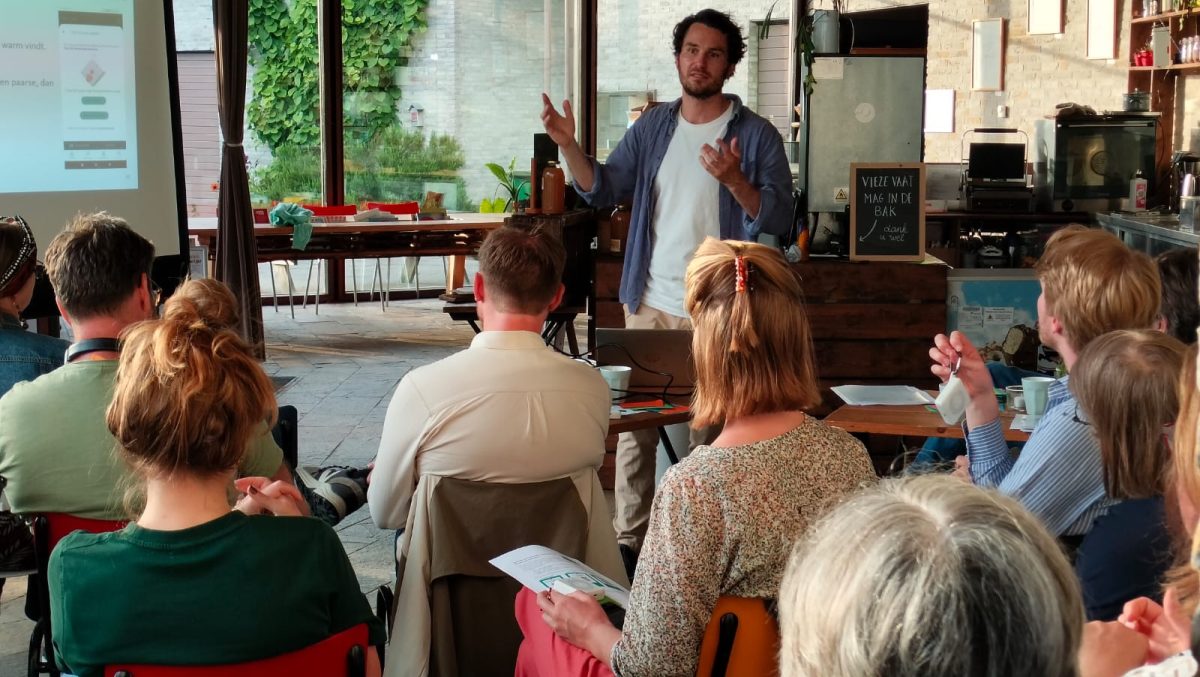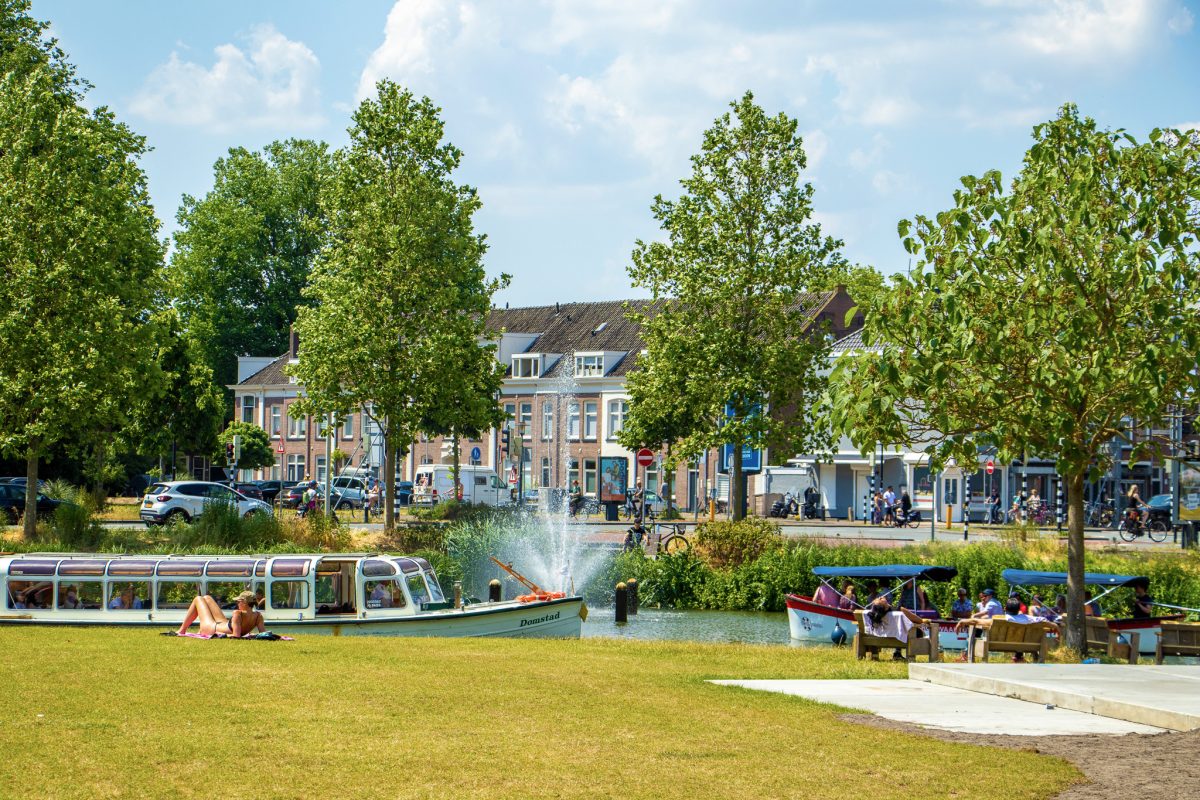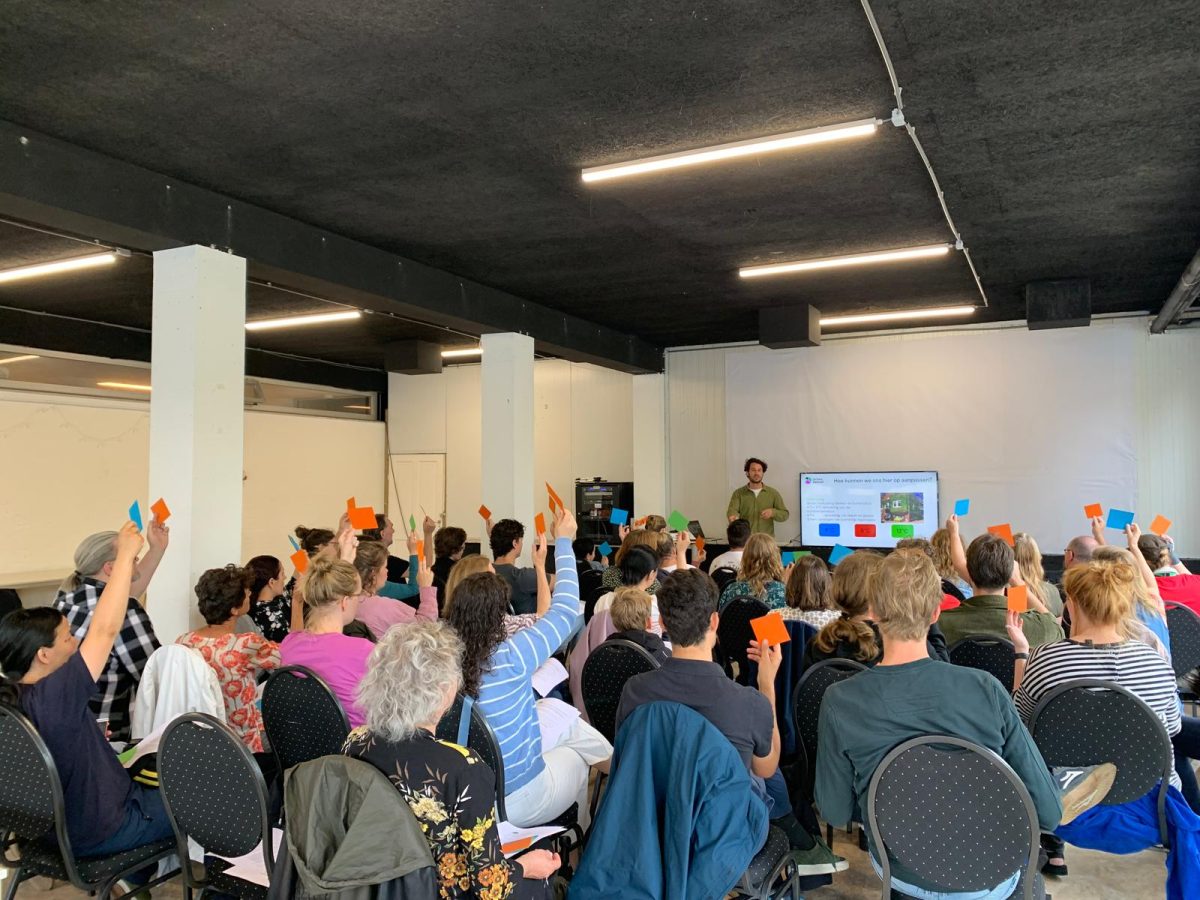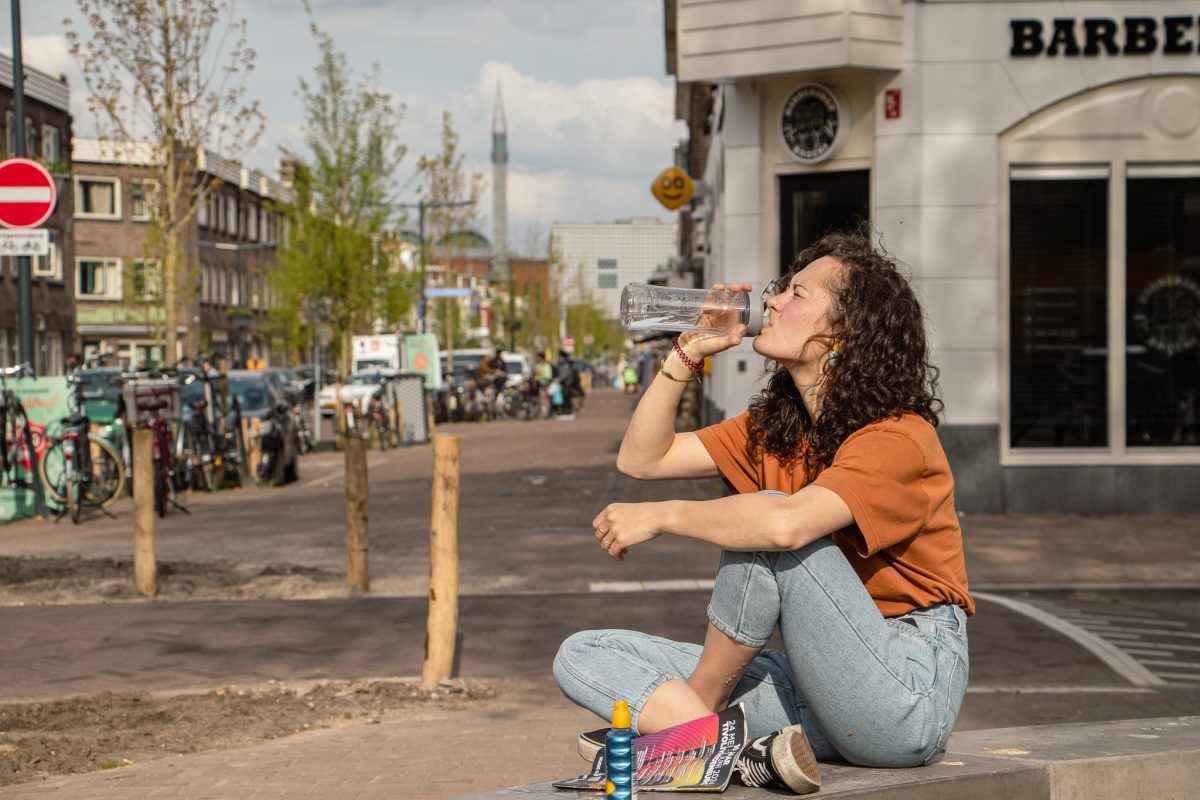July marked the official launch of the Utrecht Heat Stress Campaign ‘Green Neighbourhood, Cool Neighbourhood.’ Residents from four neighbourhoods were introduced to Urban ReLeaf wearable sensors, and over 100 sensors were distributed.
These sensors record air temperature, moisture levels and heat stress as residents go about their daily activities during these alarmingly hot summer months. The data collected—20,000 data points so far—will be used to create a heat and coolness map of the neighbourhoods.

The four selected neighbourhoods have a heavy stone layout with minimal greenery; a characteristic of many European towns. In such grey areas, summer heat tends to linger between buildings, with few trees providing cooling shade. While theoretical knowledge and remote-sensing data highlights this issue, firsthand data collection provides a unique and personal perspective.
Citizen science engages residents in understanding their environment, sharing insights, building communities, and developing solutions collectively. In addition to sensor data, surveys gather extra information on residents’ experiences with heat in their homes and neighbourhoods, offering valuable insights for The Municipality and Province on the support needed for cooling.

In Utrecht, The Municipality and Province are collaborating on this initiative, with support from the Nature and Environment Federation Utrecht (NMU) for community building and field pilots. NMU has created a community where residents exchange their findings, measurements and much more.
They discuss tips and tricks on cooling, greening and collaboratively organise events and activities. Last month, residents participated in a ‘Neighbourhood Safari’ with an Urban Ecologist where they learnt about local biodiversity and ways to enhance their conditions.

Upcoming events will explore the potential of greening measures, discuss data analysis, and develop possible courses of action. We look forward to seeing the results of this year’s pilot by the end of the summer.
For more information please visit: https://samenmetenutrecht.nl/project/koele-buurt/
